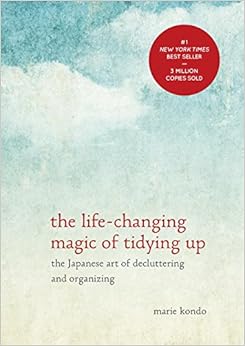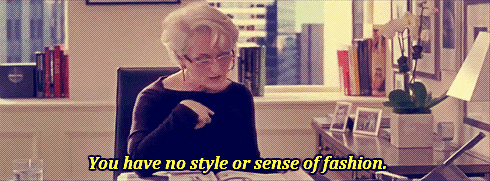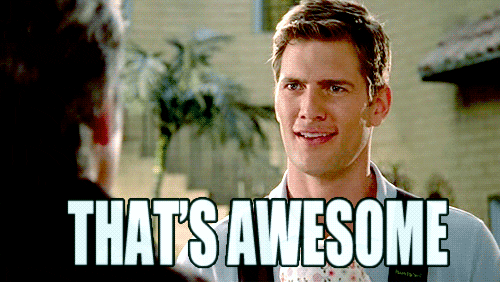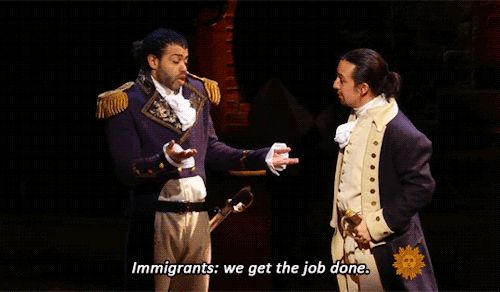
From Mary Oliver’s poem “Sometimes.”
original image: Cannadian Horseshoe Falls by Robin Lee
Happy Friday, guys! We got some much-needed sun this week, and I got some good writing time in. Here’s a look at what I’ve been reading and writing, in fifteen words or fewer:
Reading: The Life-Changing Magic of Tidying Up: The Japanese Art of Decluttering and Organizing by Marie Kondō
I’m both side-eying this advice and compelled to clean my closets.
Writing: “…I felt her warmth beside me, and it felt like we were happy.”
I think I’m settling on my new project. Fingers crossed!
All the links I’ve been saving:
 Happy Friday, everyone! It’s been the grayest, rainiest week in the Boston area, but between NESCBWI last weekend and jumpstarting the YA Buccaneers‘ Spring Writing Bootcamp, I’ve been feeling the good writing vibes. Here’s a look at what I’ve been reading and writing in fifteen words or fewer:
Happy Friday, everyone! It’s been the grayest, rainiest week in the Boston area, but between NESCBWI last weekend and jumpstarting the YA Buccaneers‘ Spring Writing Bootcamp, I’ve been feeling the good writing vibes. Here’s a look at what I’ve been reading and writing in fifteen words or fewer:
Reading: The Girl Who Chased the Moon by Sarah Addison Allen
Parts didn’t quite hang together for me, but love her characters and settings.
Writing: “We were born for bad luck.”
We’ll see where this goes.
One of my favorite annual conferences, NESCBWI, is this weekend, and I’m so psyched to see lots of wonderful writer and illustrator friends for a weekend of bookish inspiration. But only a few years ago, I was a total NESCBWI newbie, and was headed to Springfield equal parts excited and nervous.
In case you’re a newbie to the writing conference experience, here are my tips for getting the most out of your weekend and having a blast.
Do: use the conference hashtag
Intimidated by how everyone seems to know everyone else? Joining in on social media can be a great way to connect with a lot of people at once, and it’s way easier to meet people in real life if you’ve already interacted on Twitter. This weekend, follow along at #NESCBWI16.
 Don’t: be scared to talk to people
Don’t: be scared to talk to people
I know, it’s hard to be the new kid. But everyone’s there because they love the same thing you do, and that means you already have something in common. Ask what they primarily write/what kind of media they use in their art/what book they’re totally fangirling over/how their last session was.
Do: take notes
 It’s easy to think you’re going to remember everything from that amazing session on outlining, but details get fuzzy a week later when you’re diving back into your WIP. Bring a notebook or your laptop/tablet and jot down a few helpful points in each session.
It’s easy to think you’re going to remember everything from that amazing session on outlining, but details get fuzzy a week later when you’re diving back into your WIP. Bring a notebook or your laptop/tablet and jot down a few helpful points in each session.
Don’t: stress about remembering everything that was said in every talk/workshop
The stuff that really resonates with you will stick with you. Sometimes it’s more important to be present than to feel like you’re going to have to recite the workshop verbatim next week.
 Do: get your time and money’s worth
Do: get your time and money’s worth
Conferences can be expensive and take you away from your other responsibilities for a weekend. (Sorry, laundry, see you Monday!) Take part in workshop exercises, listen to the keynotes, join in on open mics, get a critique from an agent or editor. This is your weekend just to be a writer, so you might as well get the most out of your time that you can.
 Don’t: get conference burn-out
Don’t: get conference burn-out
Getting the most out of your weekend is one thing, but you don’t want to be so drained by it all that you end up zombie-walking through your last four workshops. Take some alone time when needed, or hole up in your hotel room and grab an hour of inspired writing time.
 Do: dress comfortably
Do: dress comfortably
It’s a writing conference, not a fashion conference. (Miranda Priestly will not be there to judge you.) Modcloth-cute outfits are appreciated, but you’re also going to be walking from room to room and floor to floor and dodging people to get a seat at lunch. Comfortable shoes are key, and a lot of people wear jeans.
 Don’t: forget to bring a few essentials
Don’t: forget to bring a few essentials
I like to have a notebook, a few pens, my cell phone charger, some business cards/bookmarks/other swag to hang out with my name and book on it, cash for the bookstore, and a reusable water bottle. Your essential items list may vary, but I think these are good basics.
Do: ask questions that benefit everyone
Most sessions have time for Q&A, but nothing’s worse than someone taking up 15 minutes on a question that only applies to their very specific situation. Think about questions that might apply to lots of other people in the group. If you have a specific question and the workshop presenter is available to talk after, bring it up individually.
 Don’t: network all the time
Don’t: network all the time
We’re writers/illustrators, but we’re also people. You don’t have to be pitching your book or bragging about your daily word counts all the time. Remember that your fellow conference-goers are also people who have families, other hobbies, favorite movies, etc. The best ways to connect with your colleagues are when you remember that they’re regular humans, too.
 Do: have a pitch for what you’re working on
Do: have a pitch for what you’re working on
This one is still hard for me, too. At some point over the weekend, someone will ask, “What do you write?” Instead of mumbling “Oh something about people and feelings, but it’s funny” like I do, think of a one or two sentence pitch for each of your projects.
 Don’t: feel bad if you leave a critique without an offer from an agent or book deal
Don’t: feel bad if you leave a critique without an offer from an agent or book deal
I’m not gonna say getting signed by an agent or editor can’t happen, but instead of worrying about getting that contract, try to focus on what’s working in your story and what you should consider in revision. And remember that not every agent/editor is the right one for you–maybe the one doing your critique could offer helpful suggestions, but ultimately isn’t the one who’s the best match for you or your book.
 Do: have fun!
Do: have fun!
Conferences like NESCBWI are a great opportunity to meet people and learn more about your craft, but they should also be a chance to enjoy yourself among your peers. Writing is hard enough, so when we’re all together for a weekend, we might as well celebrate.
And if you’ll be at NESCBWI this year, copies of The Chance You Won’t Return should be available in the bookstore. I won’t be doing an official signing, but if you have a book and find me around, I’ll totally sign it for you (and give you a hug/high five).
Other conference tips? Share them in the comments!
 Happy Friday, everyone! This has been a pretty exciting week for me, and I’m having a birthday redo this weekend (since my actual birthday involved food poisoning and frozen pipes), and today’s the second anniversary of The Chance You Won’t Return‘s publication, so I’m giving mid-April a big thumbs up. Let’s get the weekend started with a look at what I’ve been reading and writing.
Happy Friday, everyone! This has been a pretty exciting week for me, and I’m having a birthday redo this weekend (since my actual birthday involved food poisoning and frozen pipes), and today’s the second anniversary of The Chance You Won’t Return‘s publication, so I’m giving mid-April a big thumbs up. Let’s get the weekend started with a look at what I’ve been reading and writing.
Reading: The Forgotten Garden by Kate Morton
Characters solved mysteries a while after I did, but enjoyed the writing a lot.
Writing: He doesn’t say it, but I think it—no one else who wanted you.
Ping-ponging around new projects. We’ll see where I land.
Because I’m a writer and because apparently writers are incapable of going for a long run without thinking about how it applies to their writing lives, here are 26 things about running that resonated with my writing life.
Your pace is the only one that matters
The first few miles, I was passed by a LOT of people, even though I was going slightly faster than my planned race pace. But I had to remind myself that trying to ‘keep up’ with everyone would majorly hurt me in the long run. Even if everyone else seems to be going faster, it doesn’t matter. Your journey and your work is the only thing that matters to you.
Fuel accordingly
Hydration is keep when you’re running. Coffee is key when you’re writing. Also chocolate. (Okay, water is key when you’re writing, too.)
Make the time
You need to set aside time to run and time to write. Otherwise it’s really easy to say “eh, I’ll do it later” and not give yourself any time.
But colorful accessories can make you feel better
Hot pink post-its and bright blue running socks can give you that little extra boost that plain white just can’t match.

The 2016 DFMC team photo
Your community matters
Running and writing feel like solitary activities, but having a supportive community matters. I never could have gotten to the finish line without the support of so many people. From my family and friends to the Dana-Farber team and staff and volunteers to people cheering for us on the course, it didn’t feel like I was alone in this journey. And I’m just as glad to be part of a supportive writing community that inspires me and encourages me every step of the way.
Lessons you’ve learned from writing and running? Share them in the comments!
Happy Friday, guys! It’s April Fool’s Day, so instead of a regular Friday Fifteen, let’s change things up with some gif book reviews:
Flying Too High by Kerry Greenwood

The Weight of Feathers by Anna-Marie McLemore

Lafayette in the Somewhat United States by Sarah Vowell
 Orbiting Jupiter by Gary D. Schmidt
Orbiting Jupiter by Gary D. Schmidt
 And a gif for the writing process:
And a gif for the writing process:
 Happy Friday Fool’s, everyone!
Happy Friday Fool’s, everyone!
Lots of links I’ve been saving:
 “You ask whether I should continue to write if no one but myself would ever see my work. There is no reason to believe that anyone will ever see any more of my work…We are likely to give many incorrect explanations for what we do instinctively. It is very easy for me to say that I write poetry in order to formulate my ideas and to relate myself to the world. That is why I think I write it, though it may not be the right reason. That being so, I think that I should continue to write poetry whether or not anybody ever saw it, and certainly I write lots of it that nobody ever sees. We are all busy thinking things that nobody ever knows about.”-–Wallace Stevens in a letter to editor Ronald Lane Latimer, from Letters of Wallace Stevens
“You ask whether I should continue to write if no one but myself would ever see my work. There is no reason to believe that anyone will ever see any more of my work…We are likely to give many incorrect explanations for what we do instinctively. It is very easy for me to say that I write poetry in order to formulate my ideas and to relate myself to the world. That is why I think I write it, though it may not be the right reason. That being so, I think that I should continue to write poetry whether or not anybody ever saw it, and certainly I write lots of it that nobody ever sees. We are all busy thinking things that nobody ever knows about.”-–Wallace Stevens in a letter to editor Ronald Lane Latimer, from Letters of Wallace Stevens
We write because it’s what we do. We don’t write because it’s going to be published or win awards or get a million reviews. We write because we’re writers.